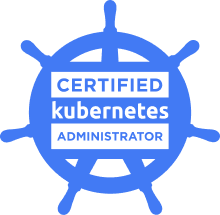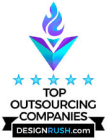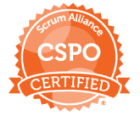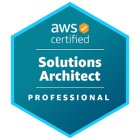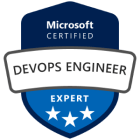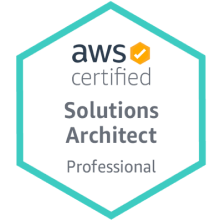DevOps Consulting and Transformation for MyPlace Connect
An improved infrastructure was required to win new users and retain acquired ones.
- Duration 2018 – ongoing
- Team 3 members
- Type DevOps; IT Consulting
- Industry Marketing
- Platforms SaaS
Project challenges
-
Limited scalability. The client’s then-used infrastructure lost its effectiveness in coping with spikes in user load. Improvements required to scale fast and seamlessly without causing any user inconveniences.Decreased system reliability. Software started getting less-than-perfect as used technologies became legacy and lost their stability, directly affecting app performance and uptime.
-
Inability to meet market challenges, such as acquiring new users and delivering new functionality with an outdated software system. The client needed to migrate to a modern infrastructure that enabled the system to adopt improvements quickly and cost-effectively.
The team made an audit and designed an elaborate plan on project migration, which was needed to increase the software stability. It was decided on Kubernetes because this platform enables the client to move into cloud fast and scale smart.
Results
-
30%
Customer growth
-
Up to 50%
Decreased scaling costs
The IT Craft DevOps team has helped with the mindful project migration to EKS (Amazon Elastic Kubernetes Service), reaching a stable and cost-effective load distribution at peaks of user activity. It also provides a multi-layered, secure configuration of the client’s infrastructure.
The IT Craft DevOps team has helped with the mindful project migration to EKS (Amazon Elastic Kubernetes Service), reaching a stable and cost-effective load distribution at peaks of user activity. It also provides a multi-layered, secure configuration of the client’s infrastructure.
-

AWS
-

Kubernetes
-

Jenkins
-

Terraform
Planning
Input
The client initially:
- Required app infrastructure improvement
- Needed support with determining the best implementation option
- Focused specifically on scalability and stability
Analysis
The team:
- Conducted a complex infrastructure audit
- Proposed implementation roadmap
- Migrated gradually to K8S infrastructure
- Built up the infrastructure with IAС and GitOps patterns
- Implemented monitoring solutions.
Result
Our work resulted in:
- Fault-tolerant infrastructure, reaching 99.8 and higher uptime
- Software performance improvement brought the customer user experience to the next level, which resulted in a 30% customer increase within 6 months and continues to grow
- Optimized resource consumption saves up to 50% of costs allocated on infrastructure scalability
- Implemented a 24/7/365 monitoring solution, making incident management 85% faster.
Business benefits
Project control
Centralized management and monitoring system ensures a comprehensive project overview. Changes are simplified.
Cost management
Implemented resource management ensures the client pays only for the used resources. Additional resources activate only when traffic increases.
Reliability
GitOps practices enable the team to track changes and view historical configurations. When necessary, rollback requires minimum effort.
Security
Migration to the new architecture reduced risks of human errors and configuration drifts. External attack surface management (EASM) has improved.
Main Steps
During our collaboration, our DevOps team has accomplished a significant scope of work on transferring the client’s application to modern infrastructure:
-
Initial infrastructure audit
The customer app needed to respond best to the growing number of recurring users.
The service experienced downtime during busy business hours.
-
Temporary solution
The IT Craft team enhanced the stability of microservice applications within a Docker Swarm cluster.
It was required as a temporary solution, ensuring uninterrupted operation of the client’s business during migration.
-
Infrastructure migration
Once the functionality became more stable, the team migrated infrastructure to manage Kubernetes solutions on AWS.
The project migration was entirely based on the Infrastructure as Code (IAC) approach. IAC, written in Terraform for all components, adhered fully to the best infrastructure practices.
-
Infrastructure management
The IAC infrastructure allows for the EKS cluster to be destroyed and recreated at any time, along with its applications.
The Terraform code can be reused in any environment, while the team only needs to change variables to create an environment.
-
CI/CD
The established CI/CD pipeline is fully automated and as close as possible to the GitOps way of running software.
-
Essential system components
Most of the essential components operate within the Kubernetes environment. The team uses:
- ArgoCD to implement GitOps methodology.
- Bitbucket as a code repository.
- Jenkins for CI/CD-related tasks.
- Kustomize to preserve the basic app and components settings by overlaying declarative YAML artifacts and reusing all basic Kubernetes manifests across all environments.
- BitNami sealed secrets controller and HashiCorp Vault secret management to secure sensitive data storage.
-
Monitoring
Observability is achieved by combining Prometheus and Grafana for Kubernetes cluster monitoring.
The team uses AWS CloudWatch for monitoring endpoints and other aspects.
Need help with software optimization?
Share your concerns with our experts and get an elaborate plan implemented.
Contact UsProject timeline
-
Project timeline
2018 – ongoing
Technologies
-

AWS
-

Kubernetes
-

Jenkins
-

Terraform
-

Bitbucket
-

Prometheus
-

Grafana
